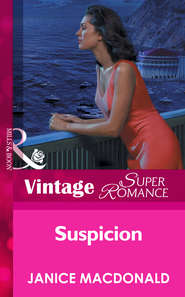По всем вопросам обращайтесь на: info@litportal.ru
(©) 2003-2025.
✖
Out Of Control
Автор
Год написания книги
2018
Настройки чтения
Размер шрифта
Высота строк
Поля
“Yes, I know,” he said. “Well, I hope this helps.”
THE VAGUE SENSE OF DOOM he’d felt after making the offer stayed with him for the rest of the morning. Daisy Fowler had no idea of course, but she had the power to make his life very, very difficult.
Later that night, he wandered down to the Hotel Laguna and had a couple of beers on the balcony while he watched the sun set over the Pacific. Instead of uplifting him, though, he found himself sinking into a morose gloom. The words of the Bongiovanni review lingered like an ill-digested meal “Arm’s length,” indeed. He sipped his beer. Gloom gave way to anger. He’d show them arm’s length. He was going to write the definitive biography of Frank Truman, and he would take no prisoners in the process. Darling Daughter Daisy be damned.
“YOUR GRANDFATHER, he was a very handsome man,” Amalia was telling Emily. “All the girls, they fell in love with him because he was so funny and so big and strong.”
“Dinner’s almost ready, you guys,” Daisy called from the kitchen of Amalia’s cottage. “Emmy, get those pictures cleared off the table so we can sit down.” She and Emmy had brought Amalia home from the hospital that morning. Predictably, Amalia had insisted on coming back to the place where she said Frank still lived in the walls and the shadows, and where the ocean that crashed onto the beach brought gifts of pale pink seashells that were also from Frank.
Daisy sighed. How could you argue with that? All you could do was case the cabin for booze bottles and accidentally on purpose hide the keys to the dune buggy so she wouldn’t take it into town until she’d recovered completely.
She set the enchilada casserole under the broiler in Amalia’s yellowing enameled stove, washed up the dishes she’d used in the deep, square sink, chipped and stained from years of use. On the draining board was a jelly jar of purple statice Emmy had picked to welcome Amalia home from the hospital.
As she took the plates from the cupboard, she spotted the fifth of vodka. She set the plates down, uncapped the bottle, poured it down the sink and stuffed it to the bottom of the trash can.
“It is very sad that you never knew your grandfather,” Amalia was telling Emily. “But a good thing that this man, Mr. Wynne, is writing a book about him because you will learn many things about him that maybe you didn’t know.”
Which is part of the problem, Daisy thought. There had been another message from Nicholas Wynne that morning. She checked the casserole—not ready yet. Amalia’s antiquated stove took forever to heat up.
She opened the back door to the balcony. A cool breeze off the ocean tossed her hair. Fog had obscured the moon. The surrounding cottages, empty in the winter months, were dark. Amalia’s cottage was at the end of a cluster of twenty that lined Dolphin Cove’s crescent-shaped beach. Before she was born, her father had used the cottage as his studio, and he and Amalia had spent summers there—fairly wild summers, she’d gathered from bits and pieces dropped by Amalia over the years. Above the fireplace was a painting of Amalia in a 1950s-era bathing suit, draped against a fin-tailed Cadillac convertible bristling with old wooden surfboards.
Pictures—of Amalia, of Amalia with Frank, of Amalia and Frank with other handsome, windblown, sun-kissed friends—lined every square inch of wall space. All were taken in the first half of her father’s relationship with her stepmother. Before Daisy, or B.D., as she often thought of it. Something had happened right before she was born, and Amalia had left.
The second phase of the Frank and Amalia relationship began on the day of her tenth birthday. She’d come down to breakfast, excited about the presents she knew would be waiting for her and found only this exotic-looking woman with huge gold rings in her ears and a red chiffon scarf tied around her head. “Say good morning to Amalia,” her father had said. “She’s made flan for breakfast.”
“It’s my birthday,” she’d blurted. “Where are my presents?”
Frank had pointed to Amalia. “Happy birthday. Meet your new mother.”
And that was it. No explanation. No little talk beforehand. “Honey, a very dear friend has come back into my life. I hope you will learn to love her as much as I do…but if for any reason you’d rather she left, just say the word. You’re always first in my life.”
Hah. Amalia had taken over the kitchen, always making dishes with too much spice and big chunks of unidentifiable meat. She’d play this weird, sad music that nothing drowned out, and she and Frank were always kissing and giggling and tickling each other.
“Either she goes or I do,” she’d told her father about six weeks after Amalia appeared at the kitchen table. “I was here before she was and it’s not fair.”
“Amalia was here long before you were,” he’d responded. “And life’s not fair.”
“Where’s my real mother?” she’d screamed. “I’m going to live with her.”
“Write me,” her father had said.
Years later, long after she’d accepted Amalia as a stepmother, she’d asked again about her real mother. Amalia claimed not to know. “I came back to your father and found him with a daughter. Frank never wanted me to ask questions.”
“Your real mother?” her father had smiled. “Who would you like her to be? Mother Teresa? Dolly Parton? Mae West?”
“Hey, Mom.” Emmy appeared on the balcony. “What’s burning?”
“Damn.” She darted inside and opened the oven. “Caught it in the nick of time.”
“Nick,” Emily said, following her.
Daisy looked up from the casserole.
“That just reminded me. Nick called.”
“The biographer?” Daisy raised an eyebrow. “Since when has he been Nick?”
Emmy rolled her eyes. “Jeez, Mom. That’s what he said his name was. He sounds nice. Kind of like… Hugh Grant. You know, in Bridget Jones’s Diary.”
Daisy nodded. They’d rented the video last week. “But Hugh Grant wasn’t really nice, was he? He was deceitful and—”
“Jeez, Mom. Chill out,” Emmy said.
Daisy carried the casserole to the table, where she had to shove aside a gigantic vase of yellow roses to make room for it. As she did, a card fell out.
To Amalia. I hope that doesn’t strike an overly familiar note, but on some level I feel as if I know you already. In any event, I wish you a speedy recovery and am looking forward to meeting you in person and learning all about your late husband. Warmly, Nicholas Wynne.
“Emily!” Daisy yelled to her daughter, who had wandered outside. “Are you going to help me, or do I have to do everything around here?”
CHAPTER FOUR
THAT NIGHT DAISY couldn’t sleep. In his book Baba talked about forgiving and how, when you did, the heart opened like a bud. But sometimes, even now, when she thought about her father she could feel her own heart snap shut. Or maybe it was more like the lid of a trunk slamming down on all the things you never wanted to think about again. All the things, good and bad, jumbled in there together. What was she supposed to do? Just hand them all to this biographer and say, “Here, you sort it all out”?
Lately, there were days when she saw her father’s face in everything. This morning it had been the pair of black rubber Wellington boots, hers, aligned neatly on the cabin’s back porch next to a pot of red geraniums.
She’d just finished feeding the goats and had started up the path to the cabin when she happened to glance down at the front step. And there was her father with his sun-faded blue eyes and year-round tan and the gleeful expression of a child as he rambled on about something he’d done that he wasn’t going to tell her about because he wanted it to be a surprise. And he was wearing a big, clomping, olive-green version of the boots he’d bought her in Paris at a shop near the Pompidou Center, where they’d also sold chickens and rabbits in cages. He’d made her put on her boots and they’d gone tromping down to the fields to check out his surprise, which had been an old wrought-iron birdcage that he’d hung from the bare branches of an almond tree. Inside, he’d perched a yellow plastic bird of indeterminate species. It was the incongruity that had delighted him.
A good memory. And then there was the one about rain.
She’d been in the bathroom getting dressed for school and she’d called out to ask if it was raining. He’d said it wasn’t, but when she’d looked outside it was pouring down. He’d flown into a rage when she questioned him. His definition of rain was obviously different from hers, he’d yelled. This was just a heavy mist, nothing more than a drizzle, and why did she even ask if she didn’t want his opinion?
Maybe it would have been funny if he hadn’t been so furious.
Would that be a memory to share with Nicholas Wynne?
She glanced at the bedside clock. Two-thirty. God, she was going to be a basket case tomorrow. She got up, pulled on a sweatshirt and padded barefoot to the kitchen. The refrigerator, a more reliable source of emotional solace than Baba—she felt guilty thinking that, but it was true—yielded only cheese, milk, peanut butter and some yellowing broccoli. But then, hidden away behind a tub of nonfat yogurt, she spotted a bag of chocolate chips.
She would hate herself for this when she got on the scales tomorrow, she thought as she finally drifted off to sleep.
The next time she opened her eyes, it was nine-fifteen.
Damn. She jumped out of bed and headed for the kitchen. And found Toby, her ex-husband, sitting there with Emily, both of them laughing.
Emmy laughing. Daisy shook her head. It was a sound she hadn’t heard in weeks. They were so deep in whatever was making them laugh that neither of them saw her in the doorway. There was a box of Cocoa Krispies on the table, two blue bowls and a gallon of milk. Emmy finally glanced up, saw Daisy and her smile faded to a scowl.
“Our little girl wants to go to culinary school,” Toby said. “What do you think about that, Daze?”
Daisy grunted something noncommittal. She and Toby ran a restaurant together, Wildfire. He was the chef, she made desserts. When they opened it last year and she’d let it slip to Martin that she’d financed it, he’d told her she needed to have her head examined. “Just don’t come complaining to me when Toby acts up, as he will,” he’d warned. “The restaurant business is notoriously fickle, and going into partnership with your ex-husband, much less a character like Toby, is just asking for trouble.”











